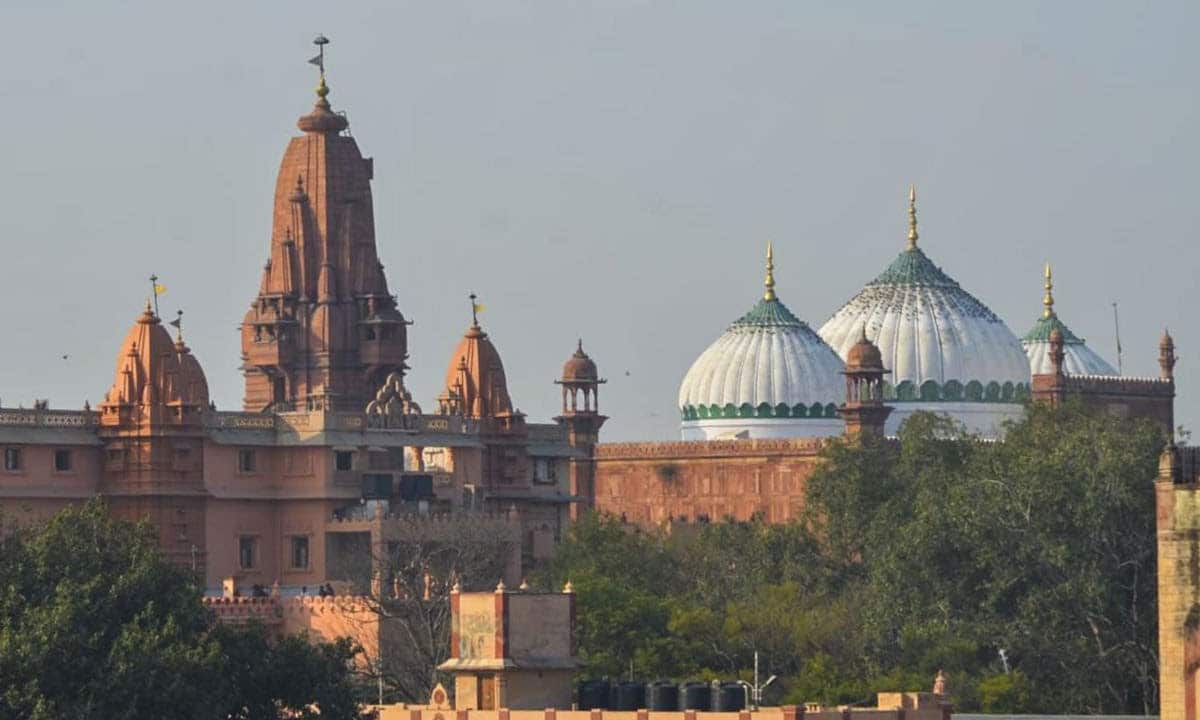Allahabad High Court Rejects Bid to Label Shahi Eidgah as “Disputed Structure”
Allahabad High Court on Friday dismissed a plea by the Hindu side seeking to officially refer to the Shahi Eidgah mosque as a "disputed structure" in all future court proceedings.

Prayagraj (Allahabad): In a key development in the Shahi Eidgah dispute, the Allahabad High Court on Friday dismissed a plea by the Hindu side seeking to officially refer to the Shahi Eidgah mosque as a “disputed structure” in all future court proceedings. The decision comes as a relief to the Muslim side involved in the case.
Table of Contents
Application A-44 Dismissed by Justice Ram Manohar Narayan Mishra
The Hindu petitioner, Advocate Mahendra Pratap Singh, had filed Application A-44 in Suit Number 13, requesting the court to instruct the stenographer to use the term “disputed structure” instead of “Shahi Eidgah mosque” during all future hearings. The application was dismissed orally by Justice Ram Manohar Narayan Mishra “at this stage,” suggesting the court saw no merit in altering the terminology for ongoing proceedings at this point.
Also Read: RJD to AIMIM: Skipping Elections Could Be a Bigger Contribution Against BJP
Muslim Side Raised Objections, Relief for Eidgah Committee
The Muslim side had filed a written objection to Application A-44, arguing that preemptively labelling the mosque as a “disputed structure” would be legally inappropriate and prejudicial. The High Court’s dismissal of the application is seen as a significant interim relief for the Shahi Eidgah mosque management and the broader Muslim community involved in the case.
Krishna Janmabhoomi Case: A Long-Running Dispute
The Krishna Janmabhoomi case involves the historic Shahi Eidgah mosque in Mathura, located adjacent to the Krishna Janmasthan temple complex. The Hindu side alleges that the mosque was built during the Mughal era by Aurangzeb after demolishing a temple believed to be Krishna’s birthplace.
A key aspect of the legal battle is a 1968 compromise agreement between the temple management (Shri Krishna Janmasthan Seva Sansthan) and the mosque trust (Shahi Masjid Eidgah), which allowed both structures to coexist. In recent years, however, Hindu petitioners have challenged the validity of that agreement, calling it fraudulent and demanding the right to worship at the disputed site.
Ongoing Legal Proceedings and Supreme Court Involvement
As of now, 18 separate petitions have been filed by the Hindu side, with the Allahabad High Court hearing them under a single-judge bench led by Justice Mishra. In May 2023, the High Court took over all related cases from the Mathura district court.
The mosque committee and the Uttar Pradesh Sunni Central Waqf Board challenged this transfer in the Supreme Court. In December 2023, the High Court allowed a plea to appoint a court commissioner to inspect the Shahi Eidgah mosque. However, the Supreme Court later stayed that order in January 2024, and the stay remains in place.
What Lies Ahead
With multiple petitions still pending, the Krishna Janmabhoomi dispute continues to be a legally sensitive and politically charged case. While Friday’s decision may have settled one procedural matter, the larger constitutional and historical questions at the heart of the dispute remain unresolved.
